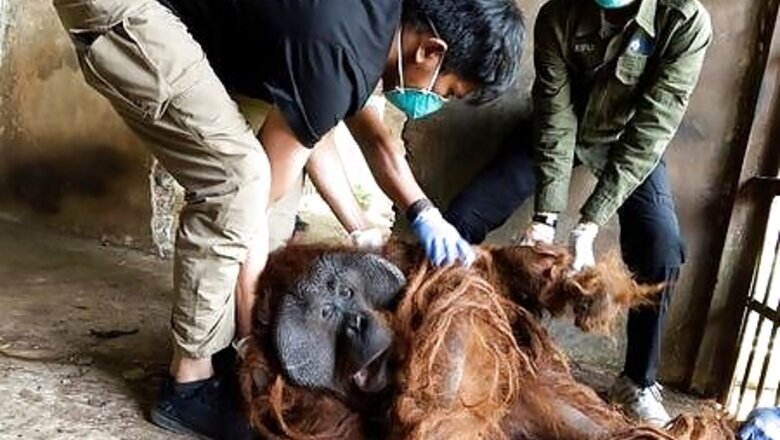
views
JAKARTA Two critically endangered orangutans have been rescued from captivity on Indonesia’s Java island and sent to a rehabilitation centre on Borneo to assess whether they can be released back into the wild, a conservation group said.
“Samson” and “Boboy”, both male and estimated to be around 20 years old, were suffering from malnutrition when they were removed from an amusement park and a private family home, according to a statement from International Animal Rescue (IAR).
The two Bornean orangutans had been identified as being illegally held in captivity in October last year before a rescue was arranged, said Darmanto, the head of Indonesia’s nature conservation agency in Central Java.
The orangutans, who had been held in cages, have been sent to a rehabilitation centre in Ketapang, in West Kalimantan province on Borneo, IAR said.
At the centre, they will be given health checks and quarantined for two months before being assessed to decide whether they can be returned to the wild.
“It’s very sad to see individuals like Samson and Boboy who should be living free in their natural habitat but instead have been confined to cages for years,” said Karmele L. Sanchez, programme director of IAR Indonesia.
“The rehabilitation process for rescued orangutans is long and complicated. It will be extremely difficult for an orangutan that has been locked in a cage all its life to learn how to survive in the wild,” said Sanchez.
There are only estimated to be around 100,000 Bornean orangutans left in the wild, according to the World Wildlife Fund, with the population crashing by more than 50% over the past 60 years.
The animals have suffered from illegal poaching, as well as destruction of habitat due to large-scale logging and replacement of forests with cash crops such as palm oil.
Disclaimer: This post has been auto-published from an agency feed without any modifications to the text and has not been reviewed by an editor



















Comments
0 comment